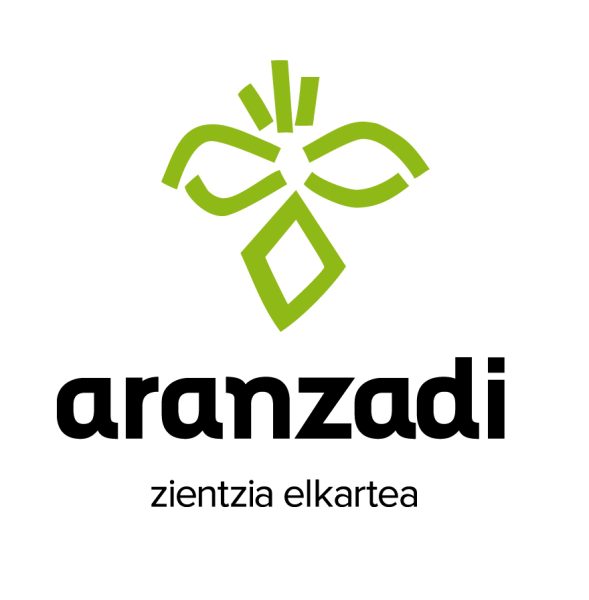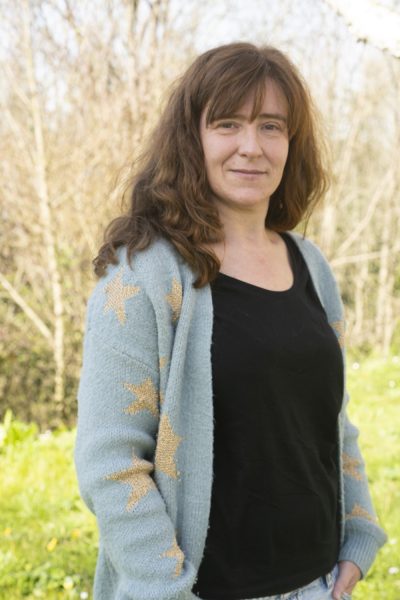Qué sabemos de… 2024
For the eighth consecutive year, the CFM in collaboration with Kutxa Fundazioa, presents the series What we know about… in Donostia / San Sebastián. This peculiar series of talks, promoted by the Consejo Superior de Investigaciones Científicas (CSIC), is inspired by the intrinsic curiosity of human beings, and features professionals in the field of science and its dissemination.
We present this edition with 4 appointments with cutting-edge science that is shaping the present to transform the future. In addition, the talks will be accompanied by a dialogue between peers so that we can get to know first-hand not only the science they do, but also the people who carry it out.
FREE ENTRY UNTIL FULL CAPACITY IS REACHED
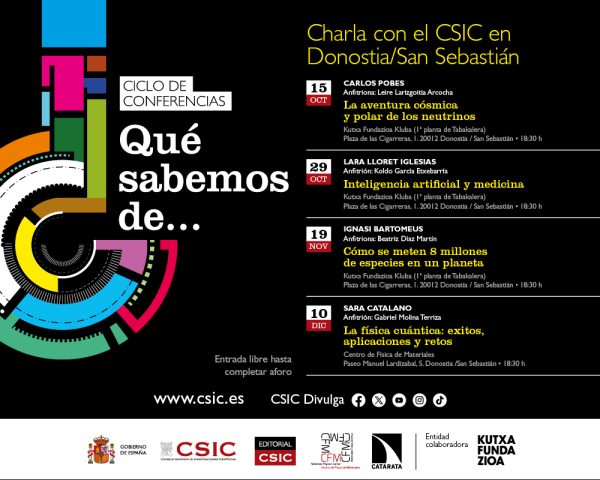
Quantum physics: successes, applications and challenges
Speaker: Sara Catalano
HOST/ Peer: Gabriel Molina Terriza
December 10,
17:30 (guided visit to CFM-FULL!!)
18:3o (Talk)
Venue: Centro de Física de Materials
Entrance free until full capacity is reached.
The word ‘quantum’ is heard more and more every day in the most varied terms: computer, medicine, communication… But what does ‘quantum’ mean? But what does ‘quantum’ mean, what is a cubit, why do we need quantum physics and why do scientists continue to study it? We will try to answer these questions and learn that the strange word ‘quantum’ helps us to better understand how our reality works and can perhaps help to shape our future. We will try to understand under what conditions some surprising quantum effects can be observed and controlled, and we will explain what are the most urgent and current challenges facing research in the field of quantum physics.
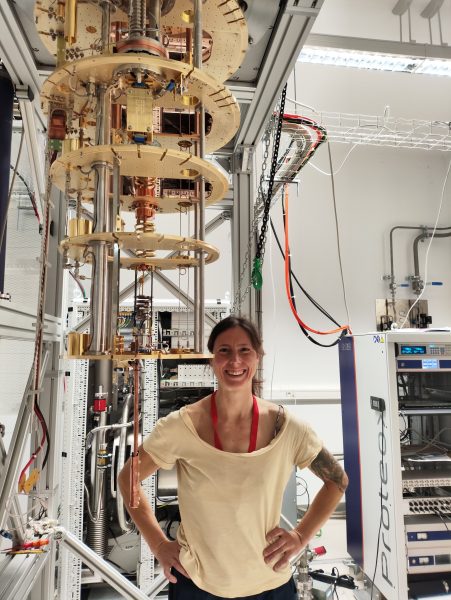 Sara Catalano
Sara Catalano
Sara Catalano is an Ikerbasque Research Fellow at the Material Physics Center. Her research focuses on the design and development of quantum devices based on interfaces between superconducting and magnetic materials. He received his PhD in Physics from the University of Geneva in 2017. He subsequently received a grant from the Swiss National Science Foundation and a Marie Curie Action to continue his scientific activity at the CIC nanoGUNE research centre. In 2023 he joined the Materials for Quantum Technology laboratory at the MPC-CFM, where he is currently working on the development of new quantum technologies.
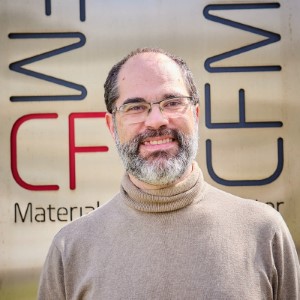 Gabriel Molina Terriza (CFM)
Gabriel Molina Terriza (CFM)
Gabriel Molina Terriza is Ikerbasque Research Professor at the Materials Physics Centre in San Sebastian. From 2009 to 2017, he worked as an Associate Professor at Macquarie University, Sydney, where, in 2015, he was also appointed Director of the Macquarie Quantum Science and Technology Research Centre and Research Director of the Department. In his research group he studies the interactions between light and matter at the nanoscale, focusing on applications to Quantum Metrology, Quantum Information and Nanophotonics. They are experts in using the spatial properties of light to reveal properties of matter, implement quantum cryptography protocols, and in quantum and classical metrology. He has been awarded several prestigious grants throughout his career: the Ikerbasque Research Chair, Future Fellowship (Australian Research Council), ICREA Jr (ICREA Foundation), Ramón y Cajal (Spanish Ministry), Marie Curie (European Research Council), among others. He has also worked at some of the most prestigious institutions in the field of Quantum Technologies, such as the University of Vienna, under the supervision of Nobel Laureate Prof. Zeilinger, Singapore (ANU) and Barcelona (ICFO). He is the author of more than 70 papers in international journals. Some of them have attracted media attention (radio, television, newspapers and popular science magazines).
The cosmic and polar adventure of neutrinos
Speaker: Carlos Pobes
Instituto de Nanociencia y Materiales de Aragón (INMA)
HOST/ Peer: Leire Larizgoitia Arcocha
Donostia International Physics Center (DIPC)
October 15, 18:3o
Venue: Kutxa Fundazioa Kluba (Tabakalera, 1st floor)
Travelling, exploring and investigating are inherent to the human race, but there are many ways to broaden our horizons. In this talk I propose several journeys where science and adventure go hand in hand. An intellectual journey to try to understand the pieces that make up our Universe, in particular, neutrinos; a cosmic journey on board one of these neutrinos to try to unveil their origins and the mysteries they hide; and an adventurous journey following in the footsteps of Amundsen and Scott to the most remote place on the planet from where these elusive particles are captured.
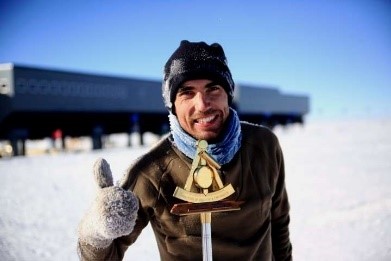 Carlos Pobes
Carlos Pobes
CSIC Senior Scientist at the INMA (Institute of Nanoscience and Materials of Aragon) and science communicator. Astroparticle physicist, PhD from the University of Zaragoza with a thesis on direct detection of Dark Matter in the Canfranc Underground Laboratory. He was presenter and scientific advisor of the Aragón TV programme En Ruta con la Ciencia, broadcast between 2015 and 2021 and awarded in several competitions. He is also co-writer of a documentary ‘Cazando lo invisible’, released in 2024, which proposes a unique journey through the darkest side of the Cosmos. In 2011, he was selected at international level to take care of the IceCube experiment, the world’s largest neutrino telescope, at the South Pole for a year. An experience he recounted on the blog www.eldiamaslargodemivida.com. He is currently developing radiation sensors based on superconducting materials, with applications in astrophysics, materials science and quantum technologies. And he continues to combine his outreach activities with his hobby of running in the mountains.
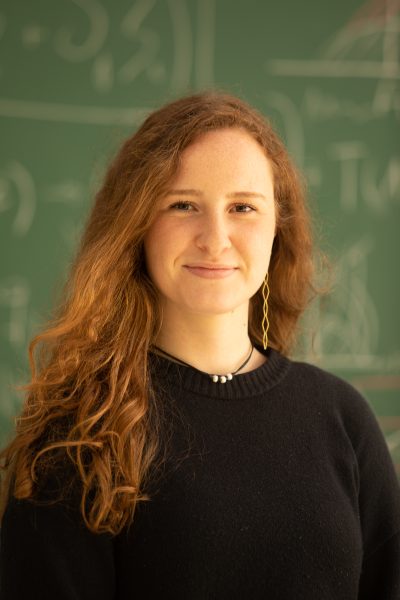 Leire Larizgoitia Arcocha
Leire Larizgoitia Arcocha
Leire Larizgoitia is a pre-doctoral researcher at the Donostia International Physics Center (DIPC). Her research focuses on experimental neutrino physics, specifically on the development of detectors. She participates in several neutrino experiments, such as NuESS at the European Spallation Source (Lund, Sweden) and NEXT at the Canfranc Underground Laboratory (LSC).
During his Physics degree (UPV/EHU) she spent time at Queen’s University (Canada) and later obtained a master’s degree from the University of Valencia. She had the opportunity to do internships at both CERN and DIPC. In 2022 she obtained the Predoctoral grant from the Basque Government to carry out her thesis at the DIPC and in 2023 she received the Fulbright grant for a stay at the University of Chicago to develop a neutron chamber.
Artificial intelligence and medicine
Speaker:Lara Lloret Iglesias
Instituto de Física de Canatbria (IFCA)
HOST/ Peer: Koldo Garcia Etxebarria
Biogipuzkoa
October 29, 18:3o
Venue: Kutxa Fundazioa Kluba (Tabakalera, 1st floor)
Artificial intelligence (AI) has experienced remarkable growth in recent years, especially in the field of health sciences. This talk aims to provide an overview of the current state of AI in medical diagnostics, addressing the fundamental challenges in this field. We will explore current applications, their limitations and future research directions that could overcome the current challenges in this exciting field.
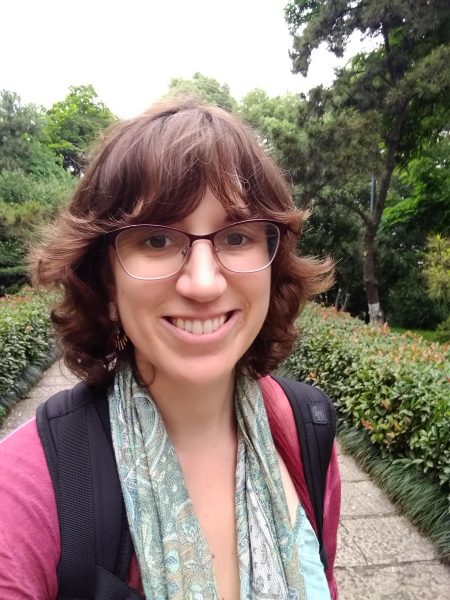 Lara Lloret Iglesias
Lara Lloret Iglesias
Senior Scientist at the Spanish National Research Council (CSIC), D. in particle physics from the University of Oviedo working on the search for the Higgs boson at CERN. She currently works in the Advanced Computing group at IFCA where she has specialised in the development of Deep Learning applications mainly oriented to the field of health, and in particular to medical imaging. She is the director of the Master in Data Science organised by the University of Cantabria and the Menéndez Pelayo International University and is a member of the executive committee of AIHUB.CSIC in charge of consolidating a scientific collaboration network of CSIC centres aimed at tackling the challenges of AI in the future. He has published a book in the Catarata publishing house entitled ‘Inteligencia Artificial y Medicina’.
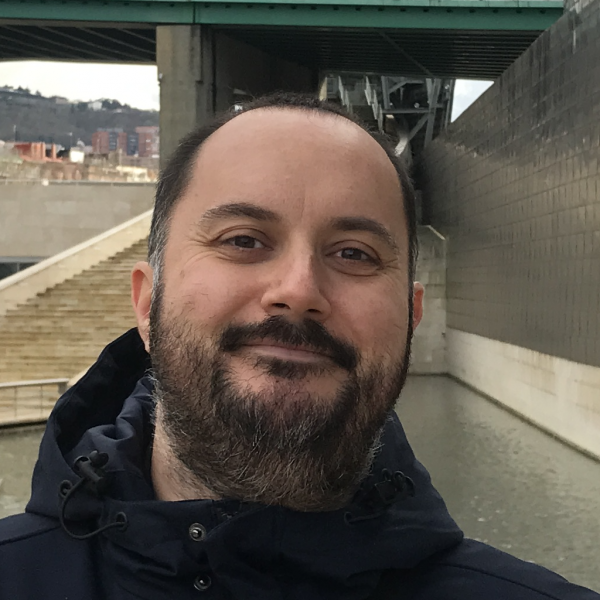 Koldo Garcia Etxebarria
Koldo Garcia Etxebarria
Koldo García, head of Scientific Dissemination and Culture at the Biogipuzkoa Health Research Institute, holds a degree in Biology and a PhD in Genetics. Among other works, he has used genetic information to research gastrointestinal diseases. In addition, he has a track record of more than ten years in scientific dissemination to the general public, collaborating in the media and giving several talks to the general public in various formats.
How 8 million species fit on one planet
Speaker: Ignasi Bartomeus
Estación Biológica de Doñana (EBD-CSIC)
HOST/ Peer: Beatriz Díaz Martín
Sociedad de Ciencias de Aranzadi
November 19, 18:3o
Venue: Kutxa Fundazioa Kluba (Tabakalera, 1st floor)
Humans have always been interested in nature. The first human cave paintings depicted herds of animals and hunters. And when we began to write, more than 5,000 years ago, idioms were used to explain how ecosystems functioned. Yet, surprisingly, no one seriously studied ecology until just over 150 years ago: it was in 1869 that Ernst Haeckel coined the term and defined it as ‘the study of the interactions between living organisms and their environment’. Do you want to know why there are an estimated eight million different species on the planet and not just a hundred or a hundred million? Why are there more species at the equator than at the poles? Why are there monkeys in South America? Or why doesn’t the most competitive species beat all the others and live alone dominating the world? To answer these questions, we will take a brief journey through the history of ecology to introduce the main laws that regulate ecological communities and the four basic mechanisms that determine ecosystems: evolution, dispersal, biotic and abiotic regulations and, finally, luck.
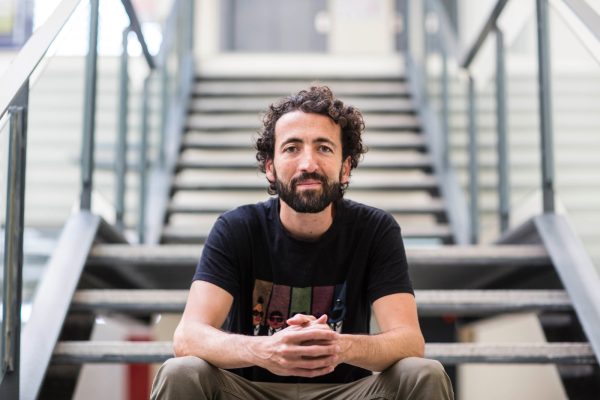
Ignasi Bartomeus
Ignasi Bartomeus is a researcher at the EBD-CSIC (Estación Biológica de Doñana), Seville. He is an ecologist interested in understanding how global change factors affect community structure and composition, and how these impacts affect ecosystem functioning and stability. He enjoys working with plant and pollinator communities because they show complex responses to land use change, climate warming or biological invasions, and encapsulate a critical ecosystem function, pollination.
Beatriz Díaz Martín
PhD in Biology from the Public University of the Basque Country, specialising in Entomology. She works on the evaluation of the conservation status and monitoring of odonates and saproxylic beetles in the C.A.P.V., and more recently with pollinators. She is also in charge of disseminating and publicising the department’s activities, having developed projects with a markedly informative and citizen participation character in the field of Entomology.
ORGANIZED BY

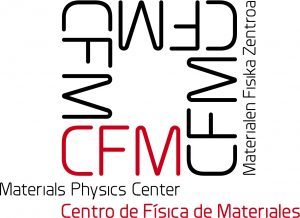
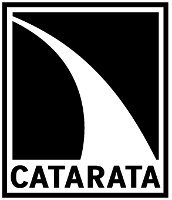
COLABORATORS

